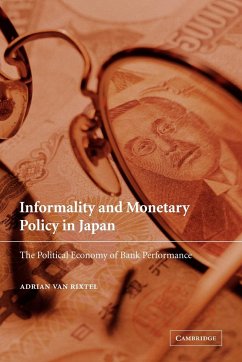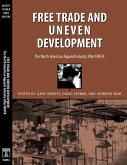The success (and recent misfortunes) of the post-war Japanese economy has been one of the most debated points in modern economics. Many explanations focus on cultural and institutional factors, and in particular the role of 'Informality' (networks organising business activity and government policy). Adrian van Rixtel, an economist at the European Central Bank, provides the first quantitative and qualitative assessment of Informality in the formation of Japanese monetary policy. Having been based in Japan for three years, two years of which were spent at the Institute for Monetary and Economic Studies at the Bank of Japan and the Japanese Ministry of Finance, he is able to bring a unique 'insider-outsider' perspective to the subject.
Hinweis: Dieser Artikel kann nur an eine deutsche Lieferadresse ausgeliefert werden.
Hinweis: Dieser Artikel kann nur an eine deutsche Lieferadresse ausgeliefert werden.





